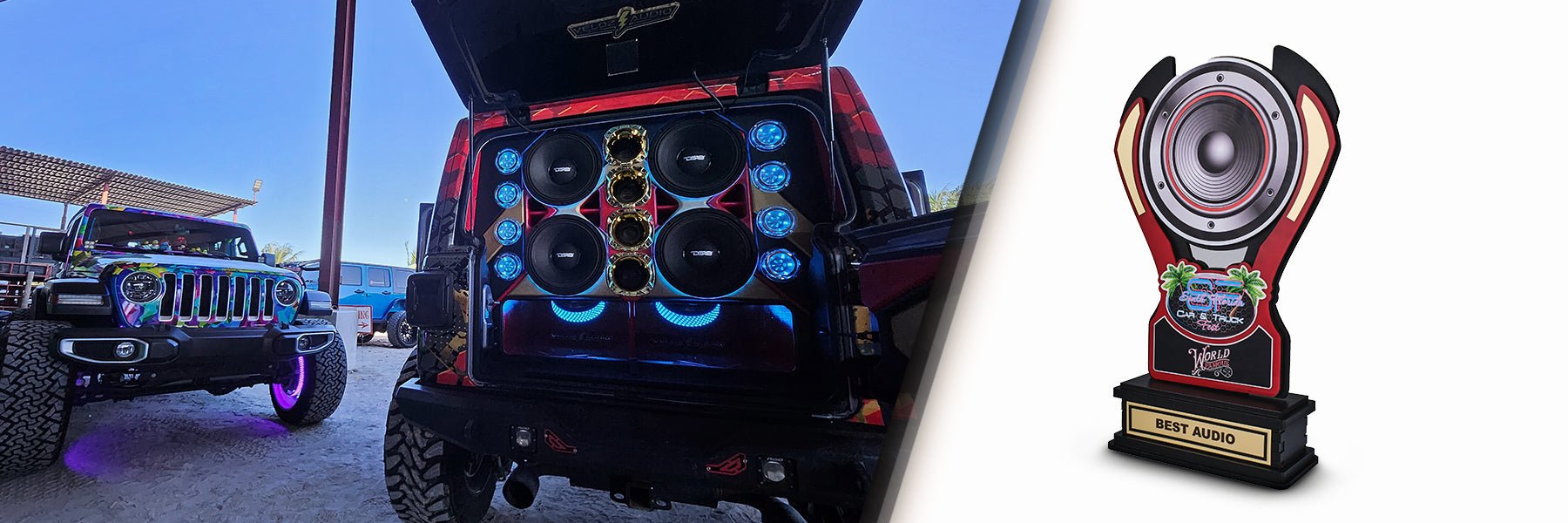There’s nothing more relaxing than cruising on the open waters, surrounded by the soothing sound of waves. And what better way to enhance this experience than by having a cutting-edge marine audio system on board? But, like any other equipment, marine audio systems require regular maintenance to ensure optimal performance and longevity.
Maintaining your marine audio system is not just about preserving sound quality; it's also about safeguarding the investment you made in your boat. Exposure to saltwater, humidity, and constant vibrations can take a toll on your audio gear if not properly cared for. By following a few essential maintenance tips, you can enjoy your favorite tunes on the seas for much longer.

Common Challenges in Marine Audio System Maintenance
Maintaining marine audio systems comes with its own set of challenges. The harsh marine environment can be unforgiving, causing damage to your audio equipment if not properly protected. Here are a few common challenges you may encounter:
- Corrosion and Rust
One of the biggest challenges in marine audio system maintenance is corrosion and rust. Saltwater is highly corrosive and can cause major problems on metal components, leading to poor audio quality and even equipment failure. Regularly inspecting and cleaning your audio gear can help prevent corrosion and prolong the life of your system.
- Moisture and Humidity
Moisture and humidity are unavoidable in marine environments, and they can seep into your audio equipment, causing damage and affecting performance. Investing in waterproof audio gear and ensuring proper installation is crucial to protect your system from moisture-related issues.
- Vibrations and Impact
Boating involves constant vibrations and impact from waves, which can loosen connections and damage sensitive electronic components in your audio system. Proper installation techniques and securing your equipment can help mitigate the impact of vibrations and ensure uninterrupted sound quality.
Essential Tips for Marine Audio System Maintenance
Now that we understand the importance of maintaining marine audio systems and the challenges involved, let's explore some essential tips to keep your audio gear in top shape:
Waterproof Audio Gear for Marine Environments
When it comes to marine audio systems, waterproof gear is a must. Look for speakers, amplifiers, and receivers that are specifically designed for marine environments. These waterproof audio components can withstand exposure to water, salt, and UV rays without compromising sound quality.
Skip the guesswork when it comes to waterproof marine audio. DS18's Best 6.5" Marine Speakers Package is your go-to choice for durability and power on the high seas. Designed to endure water, salt, and UV rays without compromising sound quality, this package includes the MP.4A amplifier with an IPX5 waterproof rating and Salt & Fog Protection.
Looking for audio that can be as loud as the waves? DS18's Best Marine Package features a manageable 4 x 40W RMS output, delivering an immersive sound for every ear. The MXRC-BT Bluetooth Audio Receiver and two sets of DS18’s MP6 Two-Way Marine Speakers complete the package, for a combined 240W RMS allowing distortion-free, high-volume audio.
Upgrade to DS18's Best 6.5” Marine Speakers Package for seamless connectivity, worry-free performance, and an unforgettable marine audio experience.

Proper Marine Speaker Installation Techniques
Installing marine speakers properly is crucial for optimal performance and longevity. Follow these best practices for marine speaker installation:
- Choose the right location: Install your speakers in a location that provides the best sound distribution and minimizes exposure to water.
- Use appropriate mounting hardware: Ensure your speakers are securely mounted using stainless steel hardware and appropriate mounting brackets. This will prevent vibrations and ensure longevity.
- Protect the speakers: Use speaker baffles or enclosures to protect your speakers from moisture, dirt, and debris. This will enhance sound quality and prolong the life of your speakers.
Best Practices for Marine Stereo Maintenance
Taking care of your marine stereo system is essential for uninterrupted sound quality. Here are some best practices for marine stereo maintenance:
- Use a marine-rated stereo system: Invest in a marine-rated stereo system that is specifically designed to withstand the harsh marine environment. This will ensure longevity and optimal performance.
- Regularly clean and inspect your stereo: Clean the faceplate and controls of your stereo using a soft cloth and a vinegar and water solution. Inspect all connections and wires for signs of corrosion or damage.
- Protect your stereo from moisture: Use a waterproof cover or enclosure to protect your stereo from direct exposure to water. This will prevent moisture-related issues and prolong the life of your system.
Marine Audio Wiring and Electrical Considerations
Proper marine audio wiring is crucial for a reliable and efficient system. Here are some key considerations for marine audio wiring:
- Use marine-grade wiring: Use marine-grade wiring and connectors to ensure durability and protection against corrosion. This will prevent issues caused by saltwater exposure.
- Securely fasten all wiring: Use appropriate clamps and zip ties to securely fasten all wiring. This will prevent any loose connections or chafing, ensuring a reliable electrical connection.
- Protect wiring from water: Avoid routing wiring in areas prone to direct exposure to water. Use wire loom or conduit to protect your wiring from moisture and damage.
Troubleshooting Common Issues with Boat Audio Systems
Despite proper maintenance, you may encounter issues with your boat audio system. Here are some common problems and troubleshooting tips:
- No sound: Check the power supply, source unit as the head unit or BT receiver, wiring connections, and fuses. Also, ensure the amplifier is turning on without a protection light as well as all RCA cables are firmly connected. Ensure that the volume is not muted or turned down. If the issue persists, consult a professional technician for further assistance.
- Poor sound quality: Check the speaker connections and wiring for any loose or damaged components. Clean the speakers and remove any debris or obstructions that may affect sound quality.
- Interference or static noise: Ensure that all connections are secure and free from corrosion. Check for any nearby electronic devices or sources of interference that may be affecting the signal.

Enjoying Soundwaves and Saltwater with Well-Maintained Marine Audio Systems
Maintaining your marine audio system is essential for enjoying the soundwaves and saltwater to the fullest. Following the key practices mentioned in this blog are imperative to preserving sound quality and extending the lifespan of your system. Upgrade with DS18's extensive catalog of premium marine and powerboat audio equipment – click here to explore DS18's superior solutions now!








